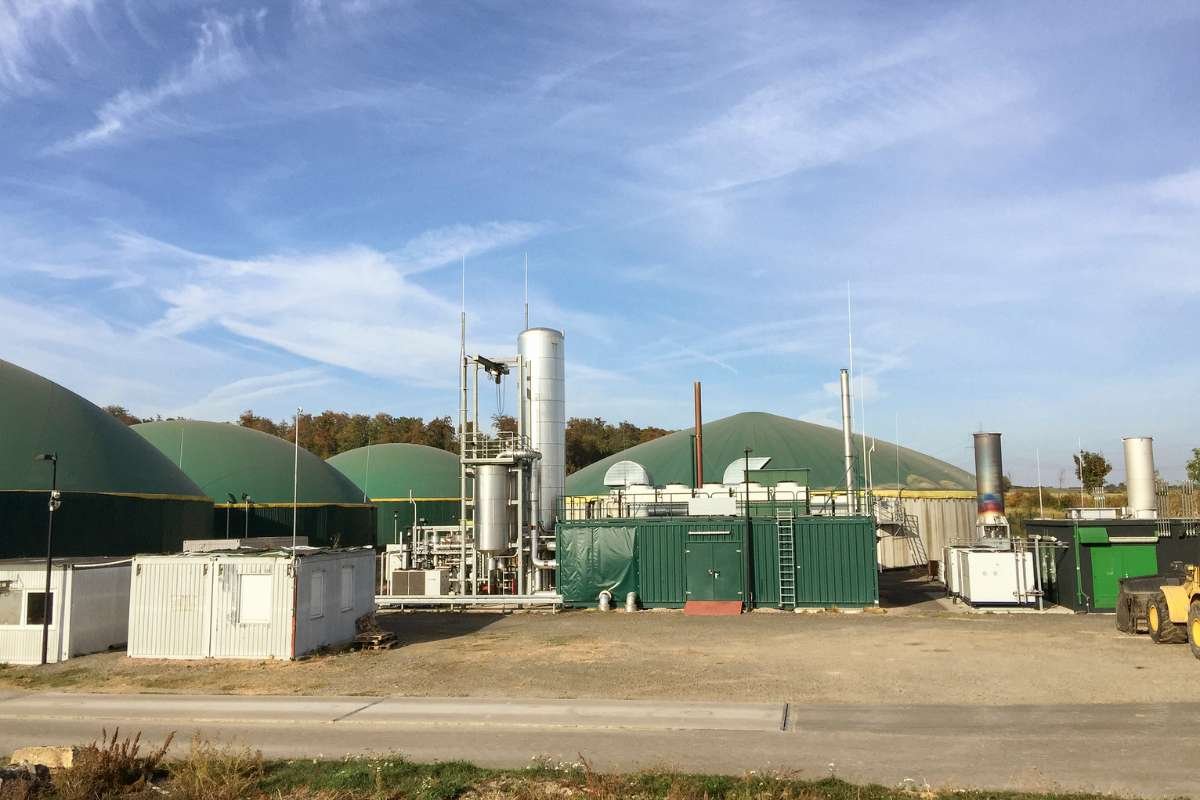Biogas Energy: A Sustainable Power Source for the Future
Biogas Energy: A Sustainable Power Source for the Future
Blog Article

Source: Image by AM-C from Getty Images Signature
Nowadays, it has become impossible to search for renewable sources of energy as climatic changes, rising energy costs, and depletion of fossil fuels make it very challenging. Introduced as a solution, biogas energy is a way of generating electricity, heat, and fuel from organic waste, which helps to reduce greenhouse gas emissions by effectively managing waste. This alternative is a choice of keeping the environment eco-friendly. In this guide, we’ll explore what biogas energy is, how it’s produced, its benefits, its applications, and the role it plays in shaping a more sustainable future.
What Is Biogas Energy?
Biogas energy is a type of renewable energy derived from the breakdown of organic matter in the absence of oxygen—a process known as anaerobic digestion. This organic matter can include agricultural waste, manure, municipal waste, plant material, sewage, green waste, and food waste.
The resulting product, biogas, is primarily composed of methane (CH4) and carbon dioxide (CO2). Since methane is a potent energy copyright, it can be used much like natural gas for cooking, electricity generation, and even as vehicle fuel.
How Biogas Is Produced?
The production of biogas energy occurs in a biogas plant, which is designed to facilitate anaerobic digestion. Here’s a step-by-step overview of the process:
- Feedstock Collection: Organic waste, such as food scraps, animal dung, and crop residues, is collected.
- Anaerobic Digestion: The waste is placed in a digester tank where microbes break it down in an oxygen-free environment.
- Gas Formation: Methane and carbon dioxide are released during digestion.
- Gas Storage: The produced biogas is collected and stored in a gas holder.
- Energy Utilization: The gas can be used to generate electricity, heat or be processed into compressed biogas for use as fuel.
Advantages of Biogas Energy
Biogas energy offers several environmental, economic, and social benefits, making it an attractive option for governments, businesses, and communities.
1. Waste Reduction
Biogas systems effectively manage organic waste, reducing landfill use and associated methane emissions. This also helps in controlling air and water pollution.
2. Renewable and Sustainable
As long as organic waste is available, biogas production can continue indefinitely, making it a truly renewable energy source.
3. Reducing Greenhouse Gas Emissions
Using biogas energy significantly lowers greenhouse gas emissions compared to fossil fuels. It also prevents methane from being released directly into the atmosphere.
4. Cost-Effective
While initial setup costs for biogas plants can be high, operational costs are relatively low. Many biogas systems become self-sustaining over time.
5. Energy Independence
Biogas allows for decentralized energy production, reducing dependence on imported fossil fuels and enhancing energy security for rural areas.
Applications of Biogas Energy

1. Electricity Generation
Biogas can be combusted in generators to produce electricity for homes, farms, and businesses.
2. Cooking Fuel
In rural households, especially in developing countries, biogas is commonly used for cooking, replacing wood and charcoal.
3. Vehicle Fuel
When purified and compressed, biogas can be used as a substitute for natural gas in vehicles—a fuel known as CBG (Compressed Biogas).
4. Industrial Use
Industries can utilize biogas energy for heating processes, thereby reducing their reliance on conventional energy sources.
5. Agricultural Benefits
The by-product of biogas production, known as digestate, is a nutrient-rich organic fertilizer that can improve soil health and crop yield.
Biogas Energy Around the World
Countries across the globe are increasingly turning to biogas as a sustainable energy solution. Let’s take a look at some international examples:
1. India
India has launched several initiatives promoting biogas for rural electrification and household cooking. The government’s Sustainable Alternative Towards Affordable Transportation (SATAT) scheme aims to promote compressed biogas as a green fuel alternative.
2. Germany
Germany is one of the leading producers of biogas in Europe, with thousands of biogas plants in operation. The energy generated is fed into the national grid and used for heating homes.
3. Sweden
In Sweden, purified biogas is widely used to fuel public buses and other vehicles, significantly reducing carbon emissions.
4. United States
The U.S. has hundreds of biogas plants, especially on dairy farms. Many states offer incentives for developing biogas energy infrastructure.
Challenges Facing Biogas Energy Adoption

1. High Initial Costs: The cost of setting up biogas plants can be a barrier for small farmers and low-income communities.
2. Technical Expertise: The proper operation of biogas systems requires technical knowledge, which may not be readily available in all regions.
3. Feedstock Availability: A consistent and quality supply of organic waste is essential for steady biogas production.
4. Policy and Regulatory Support: The lack of clear policies and incentives can slow down investment and innovation in the biogas sector.
The Future of Biogas Energy
The future of biogas energy looks promising with the development of advanced technologies and growing policy support. Innovations such as modular biogas systems, smart monitoring, and hybrid energy models (combining solar and biogas) are emerging to address existing limitations.
Several international organizations, including the United Nations and World Bank, have recognized the role of biogas in achieving the Sustainable Development Goals (SDGs), particularly in areas of clean energy, climate action, and responsible waste management.
How Individuals and Communities Can Get Involved?
Whether you’re a homeowner, farmer, entrepreneur, or policymaker, there are several ways to promote and adopt biogas energy:

2. Support Local Biogas Projects: Communities can pool resources to set up shared biogas plants, benefiting from both energy and waste management.
3. Advocate for Biogas Policies: Encourage local and national governments to introduce subsidies, tax benefits, and awareness programs promoting biogas energy.
4. Use Biogas Products: Support businesses and products that utilize or promote biogas technology.
Conclusion
Biogas energy came as a powerful solution to the world seeking reliable alternatives to fossil fuels. Opting for biogas energy is not only eco-friendly but also convenient economically. The more encouragement of biogas energy consumption, the more it will be possible to make the world cleaner, greener, and energy resilient. Whether at a household, community, or national level, embracing this renewable energy source is a step toward choosing the correct direction. It converts waste into energy, a concerned initiative towards the environment. Here, “waste doesn’t go waste.”
Did you find this article helpful? Visit more of our blogs! Business Viewpoint Magazine